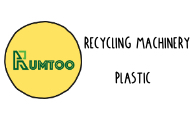While Deposit & Return Schemes (DRS) have been successful in increasing recycling rates in Northern Europe, they have faced opposition in some Southern European countries. Countries such as Spain, Italy, and Greece have been reluctant to implement DRS, citing a variety of reasons1.
One of the main arguments against DRS is the perceived disruption to existing waste collection and recycling systems. Many Southern European countries have invested heavily in curbside collection systems, and there are concerns that DRS could undermine these systems by diverting valuable materials, such as plastic bottles and containers, away from them1.
Another concern is the cost of implementing DRS. Setting up the necessary infrastructure, such as reverse vending machines, and managing the logistics of the scheme can be expensive. Critics argue that these resources could be better spent on improving existing recycling systems1.
There are also concerns about the impact of DRS on small retailers, who could be required to take back used bottles and containers. This could impose additional costs and logistical challenges for these businesses1.
Despite these concerns, proponents of DRS argue that the benefits of the schemes, including increased recycling rates and reduced littering, outweigh the potential drawbacks. They point to the success of DRS in Northern Europe as evidence of their effectiveness1.
In conclusion, while DRS have faced opposition in Southern Europe, the ongoing debate highlights the complexity of plastic recycling and the need for tailored solutions that take into account the specific circumstances of each country.
Dilarang memperbanyak tanpa izin.:Mesin Daur Ulang Rumtoo » Penentangan terhadap Skema Setoran dan Pengembalian di Eropa Selatan

 Mesin Daur Ulang Rumtoo
Mesin Daur Ulang Rumtoo Tanyakan sekarang
Tanyakan sekarang